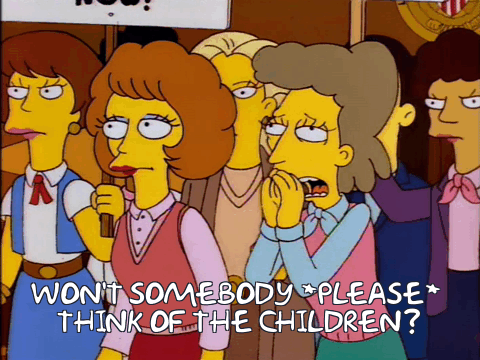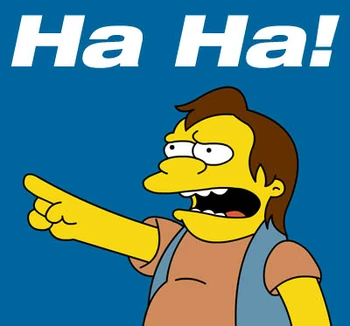Chap wrote:subgenius wrote:in the context of this thread and topic, if the 6 y.o. child was groped by a 7 y.o. child, then the punishment for the 7 y.o. should be what? the same punishment as for an 8 y.o. offender? a 10 y.o. offender?.....an 18 y.o. offender?...what arbitrary/subjective line would you like to draw and what subjective "modern" interpretation of justice would you like to impose?
Or are you claiming that there is an absolute right/wrong on this matter?
In civilised countries, the criminal law is not applied to children of the ages said to be involved in this case. So no lines have to be drawn in advance: we are free to look at all the circumstances without having to refer to legal rules involving guilt and punishment. But most people who know about children would say something like this, in my experience:
1. Separate the molester from the molestee, and keep them that way.
2. Talk separately to both kids, roughly as follows:
(a) Molestee: get him or her to tell their story of what happened. Tell them it was not their fault, and they don't have to feel they did anything bad. Make it clear they can always tell an adult about this kind of thing.
(b) Molester: find out when someone did something like that to them (which is almost certain to be the case in situations like this). Was it an adult? Is it still going on? Then act accordingly. And tell them they have to stop doing that to other people, because they don't like it, so why should anyone else?
3. Talk to the adults responsible for the care of the kids in question, make sure they understand the situation and know what to watch for and what situations to avoid in order to ensure it does not happen again.
Jersey Girl may have helpful advice and comments to give.
Amazing that the question even needs to be answered. Even more amazing that the question was asked. In the case of minor age (developing) children, no punishment is required nor is it appropriate. In the case of legal age adults, follow the law.
Children do not become sexualized without assistance from adults. Even when there exists the rare chain of child:child sexual abuse, look back far enough and you'll find the adult who initiated the chain.
Depending on where the offense took place--school, immigrant shelter for minors--report to social services is required by state law which governs the program and it's facilitators. Once social becomes involved, they direct the case which would include skilled interview of the children involved (possibly interview by LE child advocacy) and the adult who took the report, and would include recommended therapeutic solutions and resources. Both children require therapy, however, parents typically have the option to decline services.
Parents certainly have the right to guide their own children and provide oversight and ongoing communication regarding therapy for their minor age child, however no other non-professional should be involved in guidance unless it is recommended and specified in writing by therapists directly to the teacher/program leader/group leader and only after conferencing with the therapist with parent permission. Ongoing communication and follow up between non-related adult (teacher, etc.), therapist and parent should be part of the plan. All communication regarding the child between only the adults directly involved and observing confidentiality.
I've had therapists visit the classroom for observation with parent permission. I've reported to social services and been questioned by social services. One case involved a child report (not my report) on an adult in a program in which I taught. The adult was immediately placed on leave by administrators. Even though I had a fairly longstanding relationship with the adult, I ceased all communication with them during the investigation. Reasons: to maintain the integrity of the investigation and the case itself should it go to court. The focal point being the child's well being and not my relationship with the adult.
by the way, the question that was posed doesn't demonstrate concern with the well being of children, but rather using children for rhetorical purposes in a political discussion as if they were objects instead of developing and vulnerable human beings. Just an observation.

